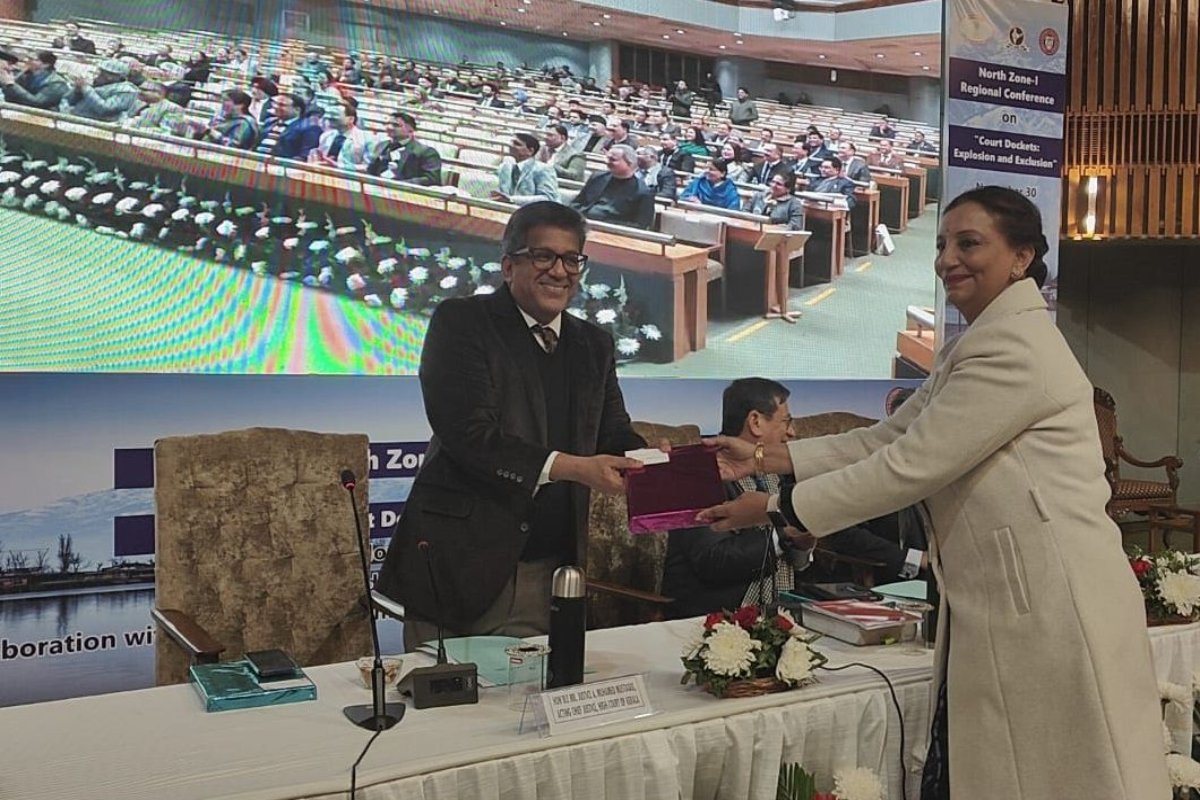SRINAGAR: The two-day North Zone-1 Regional Conference, organized by the National Judicial Academy, Bhopal, and hosted by the High Court of Jammu & Kashmir and Ladakh along with the J&K Judicial Academy, concluded today at SKICC, Srinagar. Judges from the Supreme Court and High Courts across various states attended the event.
Focusing on the theme “Court Dockets: Explosion & Exclusion,” the conference included two technical sessions on its final day. Justice Rajesh Bindal, Judge of the Supreme Court, and Justice A. Muhamed Mustaque, Judge of the Kerala High Court, led discussions in the first session on bridging the digital divide through the e-Courts Project.
Justice Bindal stressed the need to address inadequate equipment, infrastructure, and unequal access to technology among judges, lawyers, and litigants to ensure equitable justice delivery. Justice Mustaque’s presentation emphasized inclusivity and accessibility in judicial technology and highlighted how digital courts can expedite case backlogs, thereby fostering public trust in the legal system.
Justice Mustaque also introduced the four principles of digital accessibility: perceivable, operable, understandable, and robust, which are essential for a transparent and efficient judiciary.
ALSO READ: 2024 Jammu & Kashmir elections is final referendum – THE NEW INDIAN
The second session, chaired by Justice N. Kotiswar Singh, Judge of the Supreme Court, included Justice M. Sundar from the Madras High Court as a resource person. Justice Kotiswar focused on effective case management to address backlogs and stressed collaboration among judges, lawyers, litigants, and court administrators to prevent delays.
Justice Sundar elaborated on the transformative potential of emerging technologies like Artificial Intelligence (AI) and blockchain in judicial decision-making. He highlighted their role in enhancing governance, security, and efficiency while paving the way for future innovations.
Justice Mustaque’s presentation also showcased the ON-courts portal, successfully implemented at the Kerala High Court, which streamlines judicial and administrative processes.
The sessions were moderated by Sonia Gupta, Director of the J&K Judicial Academy, who noted the interactive nature of the discussions. Participants actively shared their experiences, challenges, and suggestions, while raising queries that were addressed by the resource persons.
The conference underscored the judiciary’s commitment to harnessing technology for a more efficient and accessible justice system.

